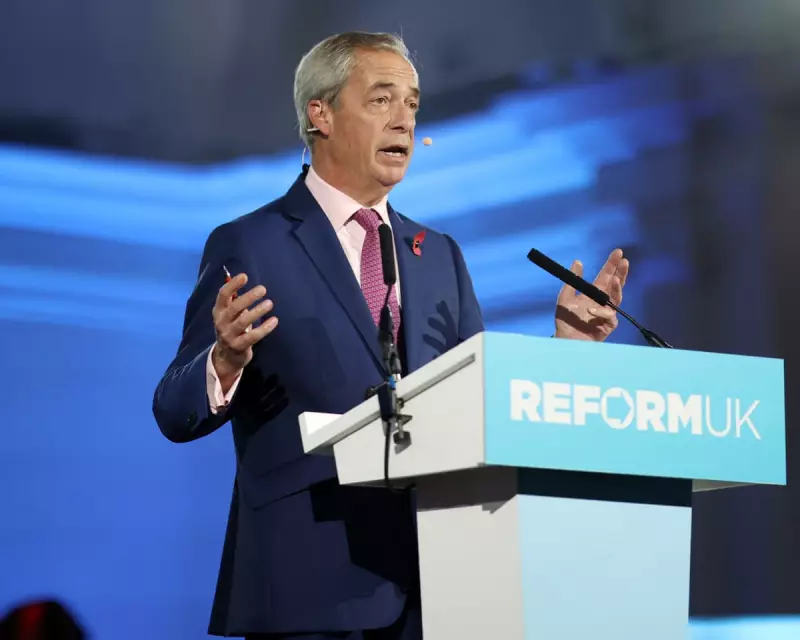
Nigel Farage has unveiled dramatic proposals that would slash government spending by £25 billion annually through measures targeting foreign nationals, as the political battle over immigration intensifies ahead of the general election.
Three Pillars of Reform's Fiscal Plan
The Reform UK leader detailed three key proposals during a press conference that would fundamentally reshape Britain's approach to public spending and immigration. At the heart of the plan are measures that directly impact foreign nationals and international aid commitments.
The most significant cut would virtually eliminate foreign aid spending, reducing the current budget of nearly £14 billion to just £1 billion annually. This represents one of the most dramatic reductions in international development spending ever proposed by a major political party.
Secondly, Reform would remove the right of EU nationals living in the UK to claim benefits, a move the party claims would save £6 billion each year. This proposal comes despite potential conflicts with the post-Brexit trade agreement between Britain and the European Union.
The third measure would see the NHS surcharge - the fee paid by non-UK residents when obtaining visas - skyrocket from £1,035 to £2,718 per year. Reform UK estimates this increase would generate £5 billion in additional revenue.
Political Context and Reactions
Farage's announcement comes just one day after the government faced criticism for suggesting it might remove jewellery from asylum seekers to offset costs to taxpayers. A Reform official reportedly described this approach as "vindictive," while Farage positioned his own proposals as a more substantial fiscal rethink.
The Labour Party has already issued strong criticism of the proposals, though notably focused their attack on the benefits measure rather than the aid cuts or NHS surcharge increase. A Labour spokesperson warned that removing benefits from EU nationals would breach the post-Brexit trade deal, potentially triggering a trade war with Europe that could increase prices for British consumers.
"Nigel Farage's fantasy numbers don't add up, and he'd leave British taxpayers footing a hefty bill," the spokesperson stated. "Farage is happy to slap British shoppers with higher prices at the checkouts by risking a trade war with Europe."
Broader Political Implications
The announcement reflects the increasing influence of immigration and border control in British politics, with mainstream parties facing pressure to address concerns that have traditionally been the domain of more extreme factions. Yesterday, the government was accused of adopting Reform UK's politics when it announced its own plans to curb asylum seekers.
Ministers defended their approach by arguing that ignoring the legitimate concerns of voters supporting Farage's party would be politically irresponsible. However, critics warn that when mainstream parties move onto the territory of more extreme parties, it often prompts those parties to shift even further to maintain their distinct position.
Farage's proposals represent exactly this kind of escalation, with the Reform UK leader calculating that nationalism remains a powerful force in British politics that will resonate with voters concerned about immigration and government spending.
The press conference took place at 10am, with Farage joined by Zia Yusuf, the party's head of policy. Meanwhile, Labour leader Keir Starmer chaired cabinet before flying to Berlin for meetings with German and French leaders, underscoring the international dimensions of the domestic policy debate.





